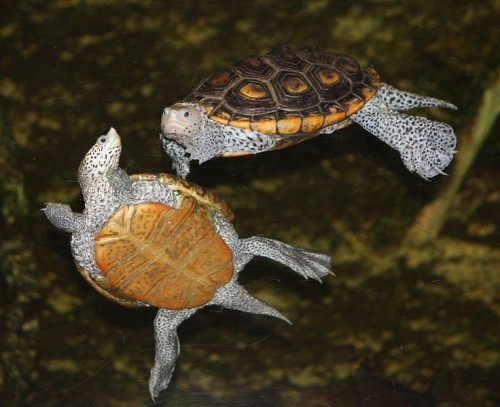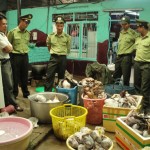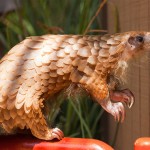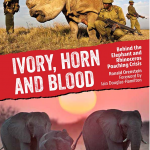
The United States, China, Vietnam, and Japan have submitted a total of 11 proposals to amend the CITES Appendices for nearly 50 tortoise and freshwater turtle species adversely affected by trade.
An estimated 48 — 54% of the world’s 328 tortoise and freshwater turtle species are significantly threatened. Millions of turtles end up in China each year, where they are eaten and used in traditional medicines.
Dr. Teresa Telecky, Director of Wildlife for Humane Society International and CITES expert, explained that the tortoise and freshwater turtle proposals represent many years of international collaborative efforts on behalf these species.
This record number of proposals really reflects the work that has been happening within CITES over the last eight or so years to focus on trade in freshwater turtles and tortoises.
According to the IUCN-SSC Tortoise and Freshwater Turtle Specialist Group, “populations are shrinking nearly everywhere”.
They are being collected, traded, and eaten or otherwise used, in overwhelming numbers. They are used for food, pets, traditional medicine—eggs, juveniles, adults, body parts — all are exploited indiscriminately, with little regard for sustainability. On top of the targeted onslaught, their habitats are being increasingly fragmented, destroyed, developed, and polluted.
The global turtle crisis is “unprecedented in severity and risk”.
Proposals, species, and sponsoring countries:
- Proposal 28: Transfer the Roti Island snake-necked turtle (Chelodina mccordi) from Appendix II to Appendix I (United States);
- Proposal 29: Include the Spotted turtle (Clemmys guttata) in Appendix II (United States);
- Proposal 30: Include the Blanding’s turtle (Emydoidea blandingii) in Appendix II (United States);
- Proposal 31: Include the Diamondback terrapin (Malaclemys terrapin) in Appendix II (United States);
- Proposal 32: Include 30 freshwater box turtle species (family Geoemydidae) in Appendix II (China and United States);
- Proposal 33: Transfer the Indochinese box turtle (Cuora galbinifrons) from Appendix II to Appendix I (Vietnam);
- Proposal 34: Include the Ryukyu black-breasted leaf turtle (Geoemyda japonica) in Appendix II with a zero annual export quota with primarily commercial purposes for wild-caught specimens (Japan);
- Proposal 35: Transfer the Annam leaf turtle (Mauremys annamensis) from Appendix II to Appendix I (Vietnam);
- Proposal 36: Transfer Big-headed turtles (family Platysternidae) from Appendix II to Appendix I (United States and Vietnam);
- Proposal 37: Transfer the Burmese star tortoise (Geochelone platynota) from Appendix II to Appendix I (United States);
- Proposal 38: Inclusion of eight softshell turtle species (Aspideretes leithii, Dogania subplana, Nilssonia formosa, Palea steindachneri, Pelodiscus axenaria, P. maackii, P. parviformis, and Rafetus swinhoei) in Appendix II and transfer two softshell turtle species (Chitra chitra and C. vandijki) from Appendix II to Appendix I (China and United States);
Goodbye, Turtle: The video below follows the journey of a turtle caught in Vietnam by a hunter, sold to a wildlife trader, and transported north across the border to the market of China. Unfortunately, this is the real fate of many of Vietnam’s native turtle species that end up in the wildlife trade.
Learn more about the global turtle crisis:
- IUCN Tortoise and Freshwater Turtle Specialist Group
- Turtle Survival Alliance
- Chelonian Research Foundation
- Education for Nature-Vietnam
Sources:
List of proposals to amend Appendices I and II and CITES Secretariat’s Recommendations. CoP16 Doc.77 Annex 1 — pp. 11 — 14
Turtles in Trouble: The World’s 25+ Most Endangered Tortoises and Freshwater Turtles—2011. Lunenburg, MA: IUCN/SSC Tortoise and Freshwater Turtle Specialist Group, Turtle Conservation Fund, Turtle Survival Alliance, Turtle Conservancy, Chelonian Research Foundation, Conservation International, Wildlife Conservation Society, and San Diego Zoo Global, 54 pp.




